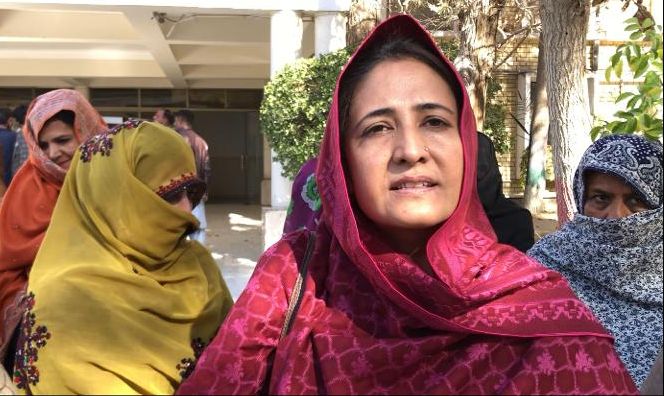
Iqbal Baloch, a resident of Quetta, expresses a preference for male candidates over female candidates from his party. According to him, if a woman is successful, local customs discourage frequent visits to her house for problem-solving. He points to the example of the previous assembly's female member, who predominantly conducted political work through her male family members. Due to this, Iqbal has not voted for a female candidate in the past and has no intention of doing so in the future.
In 2002, during the country's elections under the Election Act 2002, a 17% reserved seat quota for women in Parliament was established, aiming to ensure their representation. Subsequently, under Section 206 of the Election Act 2017, political parties were mandated to allocate 5 percent of tickets to women for general seats, facilitating increased female representation in parliament.
Following the enactment of Section 206 in 2017, a greater number of women received party tickets for general seats in the last election compared to previous instances. In the 2018 general elections in Balochistan, 37 women contested for general seats in the National and Provincial Assemblies. Only one woman candidate emerged victorious, receiving 2.8 percent of the votes cast.
Also Read: Celebrating Life Amidst Debates: The Birthday Dilemma
In Balochistan, six women contested elections on 16 National Assembly seats, collectively garnering 52,666 votes. Zubaidah Jalal was the sole successful candidate with 33,462 votes. The share of female candidates in the provincial assembly elections was worse, as 31 women received a total of 31,439 votes, constituting only 1.76 percent of the total votes cast.
In the previous general elections, 183 women participated in the general seats of the National Assembly nationwide, but only eight secured seats in parliament. Sana Durrani, an active politician in Quetta for the past decade, stands out as one of the few women engaging in political activities independently in Balochistan.
Sana Durrani, who has been associated with the Pakistan Peoples Party, anticipates challenging male candidates in the upcoming general elections after receiving party tickets. She notes that neither her party nor others have issued tickets to women for general seats in her area, and there has been no specific campaign targeted at women voters.
Sana Durrani emphasizes the need for awareness among women, stating that women voters, though potentially outnumbering men, lack a specific procedure. Political parties, despite the requirements of Section 206 of the Election Act 2017, issue tickets primarily in constituencies with negligible party voter numbers. Sana suggests empowering women to make informed choices aligned with their ideologies and concerns when casting their votes.
Sana Durrani highlights that participating in elections in Pakistan demands substantial funds, and the lack thereof poses challenges for most women candidates. Consequently, parties often withhold financial support. She notes that women in the country face economic dependence, and when a woman contests an election, questions about the source of her funds arise. Accusations of immorality may even surface. This situation prompts women politicians in Balochistan, including Sana, to strive for the success of their parties to secure seats in the assembly through reservations.
In the 2018 elections, there were a total of 849 general seats, including 272 in the National Assembly and 577 in the four provincial assemblies. The People's Party issued 642 party tickets for national and provincial constituencies, with the highest number, 43, allocated to women candidates.
According to the Election Commission of Pakistan's website, Balochistan's 34 districts have approximately 2.19 million women voters, and 11 seats are reserved for women in the 65-member House of Balochistan. In 2018, women's voter turnout was low nationwide, including in Balochistan, with a 37.64 percent turnout in the 51 provincial constituencies.
Nationwide, the number of voters stands at 126 million 66 thousand 874, with male voters at 54.02 percent and female voters at 45.98 percent. The CEO of the non-governmental organization "Center for Peace and Development" emphasizes the positive impact of allowing women to contest general seats, increasing their participation in politics and decision-making.
The Election Commission has taken measures to address gender disparities, including sending notices to political parties issuing less than 15% of tickets to women. According to the Election Act 2017, if women voters' turnout at a polling station is below 10 percent, the polling is void, and re-voting is conducted.
Alauddin Khilji, head of Aurat Foundation, notes persistent mistrust in women by political parties. While the Election Commission's mandate of five percent tickets for women has been met, there is a perception that tickets are provided in winning constituencies, diminishing the chances of success. In the last three elections, no female candidate has been successful in the four provincial seats of Quetta, the main city of Balochistan.
In Pakistan, Balochistan province is identified as having the highest gender discrimination, as evidenced by statistics from voter lists to candidate nominations and Election 2018 results.
Note: This story is part of the Pakistan Press Foundation Fellowship.